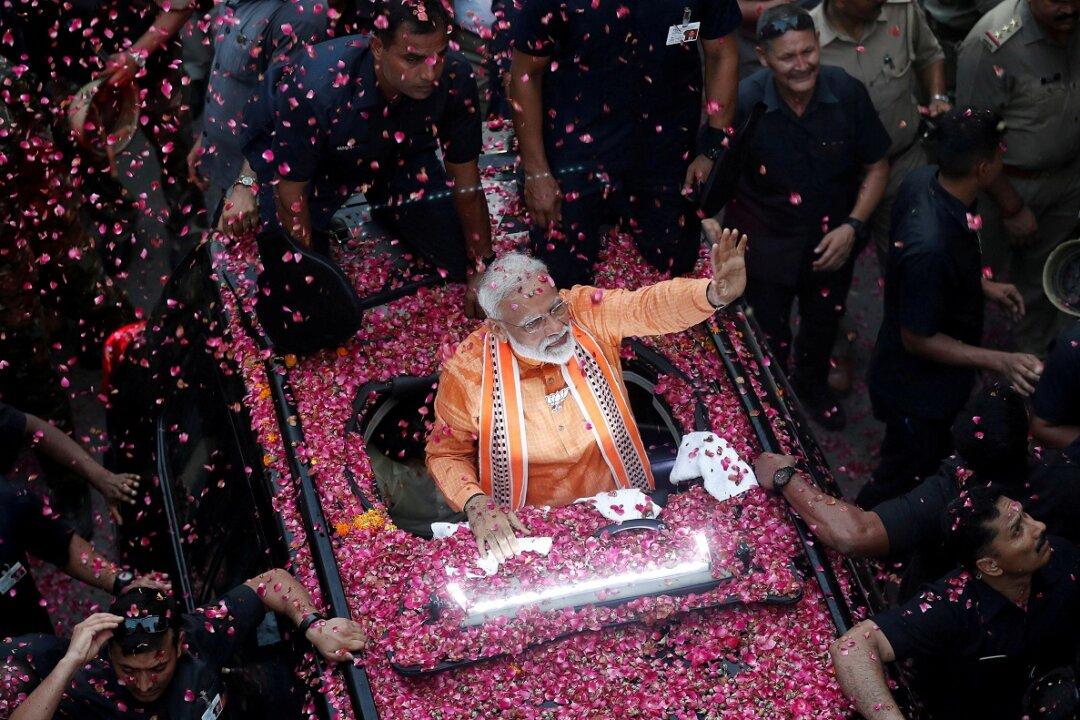NEW DELHI—Indian Prime Minister Narendra Modi is likely to return to power with an even bigger majority in parliament after a mammoth general election that ended on Sunday, May 19, exit polls showed, a far better showing than expected in recent weeks.
Modi faced criticism early on in the campaign for failing to create jobs and for weak farm prices, and analysts, as well as politicians, said the election race was tightening with the main opposition Congress party gaining ground.





